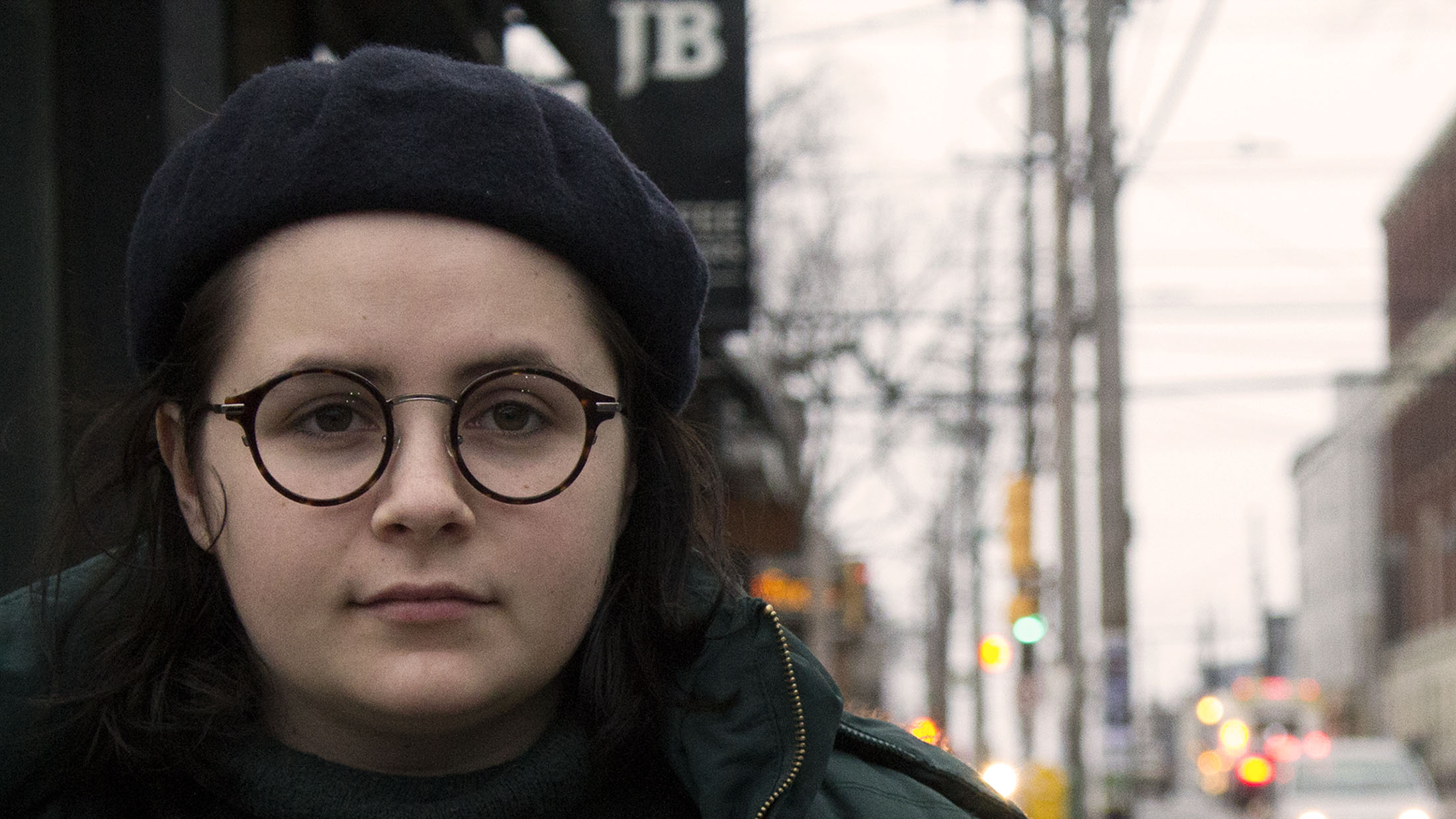MENTAL HEALTH
Boycotting Bell Let’s Talk Day
Some people with mental illness will not participate

caption
Rebecca Butler, a 22-year-old woman in Halifax, has been a vocal opponent of Bell Let's Talk Day.Sadie Jacobs-Peters wants to hide. To avoid Bell Let’s Talk Day on Jan. 30, she has deleted the Instagram app from her phone for the day. She has also muted the term, “Bell Let’s Talk” on her Twitter account, as she did during the campaign last year.
“It was so overwhelming, and it just felt like something I couldn’t escape,” she says, having taken medication for anxiety and depression for nearly five years. “Usually I’m at school and there’s not a whole lot of places to hide … I just don’t like Bell Let’s Talk Day. It can be very painful for a lot of people.”
Bell Canada calls the campaign “the world’s biggest conversation about mental health.” Ellen DeGeneres, Justin Trudeau, Celine Dion and 138 million other people sent messages of support or told personal stories last year using #BellLet’sTalk.
Every time somebody tweets using the hashtag or watches the Bell Let’s Talk video on Instagram or Facebook, and every time a Bell customer makes a phone call or sends a text message on the day, Bell donates five cents to mental health services. Since 2010, the campaign has raised $93 million, one nickel at a time.
However, some people with mental illness, like Jacobs-Peters, try to block out the campaign. On one hand, they say Bell Let’s Talk Day is too intense, as the mass of messages can trigger harmful thoughts. On the other hand, they say the campaign is too lazy, as Canadians can type a short message, call it activism and call it a day.

caption
A Dalhousie student wears a toque in support of Bell Let’s Talk Day.“It’s really frustrating for me to see all these people with their little hats and their little noisemakers when they’ve never spoken out about mental health up until this day,” says Jacobs-Peters. “For me it’s a year-round process rather than one day that hits hard and can be quite damaging.”
Damage comes from people watering down the terms “anxiety” and “depression,” Jacobs-Peters says. She says the campaign focuses on student athletes and members of student unions, rather than people who do not fit into these groups. Some people might describe being depressed after a few bad days, she says, which could be legitimate but reduces the weight of her own diagnoses.
“Just listening to others I know will trigger a low period for my depression.”

caption
Students at Mount Allison University clap noisemakers during a basketball game.Exclusion
Rebecca Butler, a 22-year-old Halifax woman, says most of the social media posts during the campaign do not address mood and personality disorders. Butler has bipolar disorder. In past years, she has stayed off social media for the day, but this year she plans to post messages criticizing the campaign.
“People will share a nicely packaged post or tweet with their experience with anxiety or depression, and it gets 100 retweets, and people say, ‘this is wonderful; this is what we need to be celebrating,’” Butler says.
“Bell Let’s Talk Day is one of these days that removes the messy edges of mental illness. It boils it down to its simplest form for a capitalist marketing campaign.”
Still, Butler recognizes the benefits of the initiative.
“I understand the other part of the argument – all the good that it brings,” she says. “I’m not someone to say, ‘burn the day down. It has no good.’”
Philanthropy
In Nova Scotia alone, the campaign has funded the salaries of mental health professionals, the creation of a 12-week online program for people with eating disorders and training in suicide prevention for shelter staff.
Alexa Bagnell, chief of psychiatry at the IWK Health Centre, is a regional expert for Bell Let’s Talk.
“Through the Bell Let’s Talk campaign over the years, I’ve seen much more comfort in people talking about mental illness and sharing their stories,” Bagnell writes in an email.
“Like any awareness day … it can be challenging for some individuals who are affected or who have had significant events in their life related to mental illness.”
Bell appoints ambassadors to speak about their own experiences in speeches and videos. One ambassador is Bruno Guévremont, a veteran who has experienced post-traumatic stress disorder. Despite criticism that Bell uses the campaign to boost its public image, Guévremont says the company deserves credit for funding mental health services.
“Bell is taking that on, and they’re doing a really, really good job, and they want to put their names on it, and they should be recognized,” he says.
On Jan. 29, Guévremont delivered a speech at NSCC. One student at NSCC, Thomas Snooks, has been diagnosed with generalized anxiety disorder and dysthymic disorder, which has symptoms that are similar to depression but last longer, according to the Canadian Mental Health Association.
“It can be difficult for people to see a lot of the things that are posted on Bell Let’s Talk Day,” Snooks says, “but I think overall, the openness and the awareness of it is still a good thing.”
Percy Miller, a fourth-year student at Mount Allison University in Sackville, N.B, says the campaign can give people a false sense of being advocates. She has an anxiety disorder, which she describes as high-functioning.
“While I understand that some students use the day/campaign to tell important stories,” Miller writes in an email. “I ultimately worry that it has given people an out in terms of mental health advocacy.”
Bracing for backlash
For Jacobs-Peters, opposing the campaign is worth the expected criticism.
“I don’t want to villainize myself in the eyes of others, but it’s kind of inevitable,” she says. “One of the reasons why it’s so difficult for me to speak out against Bell Let’s Talk is because of the amount of money that’s been raised.”
Last year on Bell Let’s Talk Day, Jacobs-Peters had to find a quiet classroom, call her partner and cry. During most of the year, she cannot anticipate when she will be overwhelmed, but she knows how she will feel on Jan. 30.
“At least this is one time of the year when I know I’m going to have a mental breakdown,” she says, “so I can schedule that in, plan around it.”


M
Mel Blanc
N
NA
N
Nikki
m
mike
S
ST
T
Terra Tailleur
R
RS